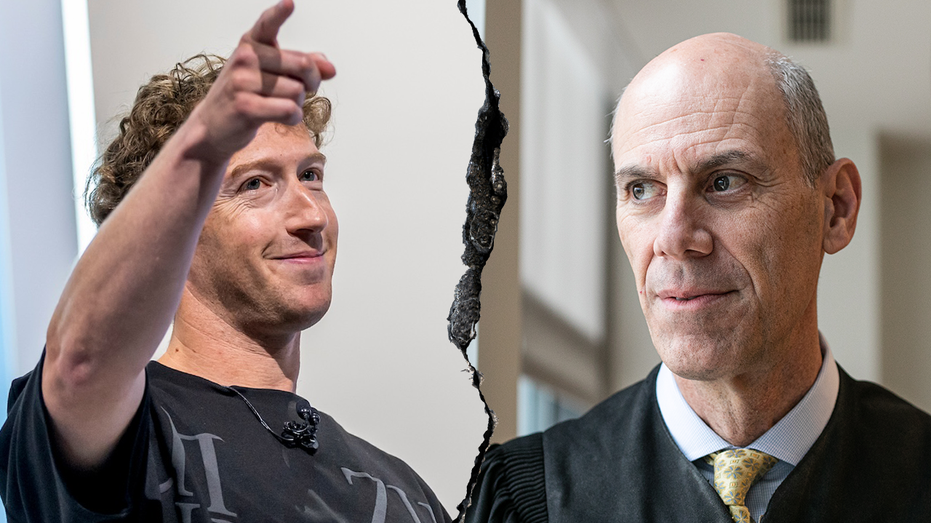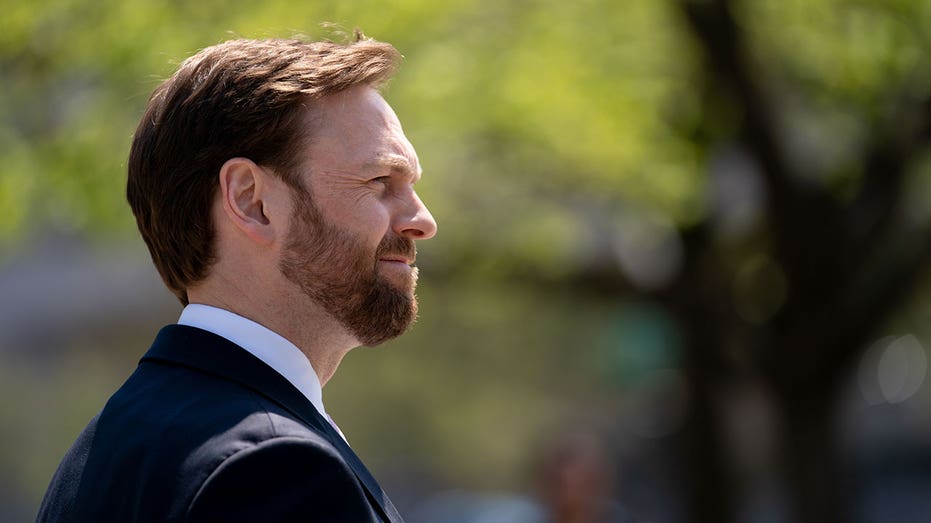The Federal Trade Commission (FTC) could face an uphill battle in its antitrust case against Meta as the agency and tech giant continue to lay out their arguments in court.
The trial began on April 14, with the FTC alleging that Meta “has engaged in anticompetitive acquisitions to protect its dominant position” in personal social networking.
The agency’s lawsuit takes particular issue with Meta’s purchase of Instagram and WhatsApp and calls for the tech company to divest or reconfigure its businesses to “restore competition.”
Those massive deals occurred in 2012 and 2014, respectively.
SHERYL SANDBERG SAYS META CONSIDERED BLOCKING COMPETITORS’ ADS IN LANDMARK ANTITRUST TRIAL
“More than 10 years after the FTC reviewed and cleared our acquisitions, the Commission’s action in this case sends the message that no deal is ever truly final,” a Meta spokesperson said in the lead-up to court.
For the FTC to win its monopolization claim, brought under Section 2 of the Sherman Antitrust Act, it must prove Meta monopolizes the personal social networking market and alleged monopolization harms competition, according to Daniel Karon, a prominent lawyer specializing in antitrust class-action lawsuits.
“This will be a tough row to hoe,” he told Fox News Digital.
Karon noted that Meta will continue to counter that TikTok, YouTube and Apple’s iMessage exist, meaning Meta has not gobbled up the social media market.
“Simply put, the FTC and Meta will fight about what constitutes the relevant market—only interactive social media platforms, meaning Meta controls the market,” he said. “Or all social media platforms, meaning Meta does not.”
Furthermore, Karon said the FTC will have to prove Meta’s alleged monopolization of personal social networking deprives advertisers of the benefits of the competition, such as lower advertising prices and increased choice, quality and innovation, and this raises the prices for consumers.
INSTAGRAM TEEN ACCOUNTS UNVEILS NEW BUILT-IN PROTECTIONS TO BLOCK NUDITY, LIVESTREAMS

The FTC, he added, will continue to attempt to prove that Meta has injured competition by providing lower levels of service and quality on privacy and data protection than it would provide in a competitive market.
Meta has stated it does not believe it controls the market; therefore, these monopoly-derived consequences are not under scrutiny.
Heading into the case, the FTC appeared confident in its argument.
During an April 14 appearance on “Mornings with Maria,” FTC Chairman Andrew Ferguson said that President Donald Trump “began this suit in 2020, and we’re seeing it through today.”
“On the finality of transactions, you know, the FTC doesn’t clear transactions, it tries to make a prediction about whether a transaction is going to be anticompetitive,” he said.
“But here, we have actual evidence that the transactions turned out to be anticompetitive and have given Facebook and Meta a tremendous amount of power, power we all saw on full display in 2020,” Ferguson said. “And so that’s what this case is about, is about addressing the power of Meta and making sure that the situation we had in 2020 can never arise again.”
But as the trial has unfolded, antitrust experts and media outlets have become less convinced.
A recent piece from The Washington Examiner claimed the FTC’s “crusade” against Meta contradicts “key parts” of the Trump administration’s agenda.
META GLOBAL AFFAIRS CHIEF SAYS DECISION NOT TO OFFER INSTAGRAM, FACEBOOK IN CHINA HELPS DEFEND FREE EXPRESSION

“If all the friendliness and Zuckerberg’s reported visits to lobby Trump for a legal settlement are successful, we can infer one of two things. Either Trump seeks to gain even more control over so-called independent agencies, such as the FTC by issuing direct policy decisions, or he isn’t of the same mind as his FTC chairman about the agency moving full steam ahead against Meta,” Jessica Melugin of the Competitive Enterprise Institute wrote.
The Wall Street Journal Editorial Board also put a damper on the FTC argument, particularly highlighting Ferguson’s claim that a monopoly can be just as dangerous as big government.
“Well, if Mr. Ferguson has evidence of a business monopoly, he can move against it. But Meta faces competition from TikTok, Snap, X.com, YouTube and others, and Mr. Ferguson would be wise to drop the lawsuit before risking a court defeat,” the board wrote.
In the last several days, the FTC presented private messages, including a 2012 email in which Meta CEO Mark Zuckerberg said buying Instagram would “neutralize a competitor.”
WHISTLEBLOWER TELLS SENATE COMMITTEE THAT META UNDERMINED US NATIONAL SECURITY TO COZY UP TO CHINA

“As calls to break up the big tech companies grow, there is a non-trivial chance that we will be forced to spin out Instagram and perhaps WhatsApp in the next 5-10 years anyway,” Zuckerberg said in another 2018 document.
The lead FTC attorney, Daniel Matheson, says that these messages and other correspondence constitute a “smoking gun.”
But Karon said that because this is a bench trial, Judge James Boasberg will decide Meta’s fate.
“He’s an Obama appointee who’s getting significant pushback from the Department of Justice (DOJ) concerning deportations. Considering the FTC, like the DOJ, is controlled by the Trump administration, it’s possible Boasberg could be tough on the FTC,” he told Fox News Digital.
“If that happens—and take root—the FTC case could be in trouble,” Karon continued.
Read the full article here















